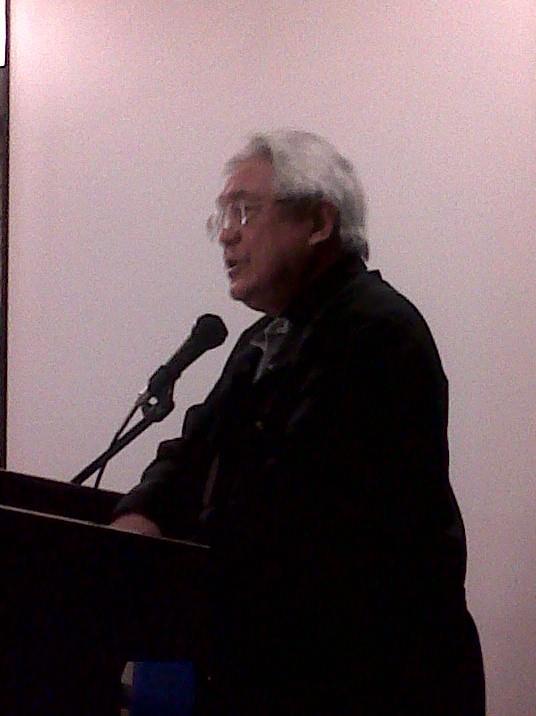SOCIAL MARKET ECONOMY

By: Lito C. Lorenzana | October 3, 2013
President at Centrist Democracy Political Institute
1Loves.
0Comments.
0People boxed this.
Dr. Dieter Benecke’s illuminating presentation of the Social Market Economy concepts created and implemented in post-war Germany by the Christian Democrats under Ludwig Erhard and Konrad Adenauer is very timely indeed in the light of the current world economic dislocations and financial meltdown.
Â
Social Market Economy is not new to the Philippine scene. While post-war Germany was perfecting the model, the concepts became attractive to a small segment of the emerging left of center political movements in the country. Raul Manglapus of the Christian Social Movement initiated the adoption in its program of government together with its twin doctrine, Federalism.
As SME was a work in progress in Germany and Europe, the implications of the economic policies in the Philippine setting were not very clear then. The advocates were in the fringes of the political and economic firmament.
The establishment of the American regime by the turn of the 1900s brought with them the Liberal Free market Economy as envisioned by the Adam Smith adherents. Over time however, only the name of the model remained while in practice, the oligarchic capture of the economy and politics coupled with the arcane practices of feudal land tenurial system were dominant.
The two principal political parties at that time were merely two sides of the same coin espousing socio-politico-economic programs paying lip service to laissez-faire and free markets.
The dissatisfaction of the populace on these untrammeled practices of capitalism permitted the entrance of a counter ideology – the Marx-Engels based centrally planned economy championed by the left.
The search for a middle ground political-economic creed brought the Christian Social Movements, the Labor Movements and all sort of shades between the two extreme into the fore.
Raul Manglapus’ CSM in its infancy in the early 60’s was opaque as to the positions it staked as the early members were practitioners of the extremes – capitalists to the right and socialists to the left – who were grouped against regimes that simply switched over power every election.
The SME and Federalists movements in the Philippines, as advocated by CSM as a third force, were cut short upon the declaration of martial law and the emergence of a home-grown Marcosian Crony Capitalism.
The twin advocacies were passed on to the center-left Pilipino Democratic Party (PDP) from Mindanao which became the core belief of its political and economic programs.
The Edsa People Power revolution of 1986, allowed Raul Manglapus to continue advocating the twin principles upon the establishment together with Fidel Ramos and Jose de Venecia the center-right Christian-Muslim Democratic Party – Lakas.
The seeming world failure of the neo-liberal-free market models and their inability to address the citizenry’s cry for social justice is making SME more palatable as an alternative system.
The world economy must learn from the present crises that having rejected the centrally planned economy, reliance on markets as the sole arbiter in the economic affairs is likewise fallacious. A certain amount of social intervention of markets are called for, through government involvement and the understanding of man as the beneficiary of all these. A strict balance however must be adhered to between the extremes of a centrally planned economy and an untrammeled free market economy (laissez faire).
The obvious question to us in the Philippines is: Can this be applied in the Philippines. Are there preconditions that must first be achieved before SME is installed?
This proverbial “chicken and egg†question is proffered only by people needing the courage to undergo change. My take on this is, we can continue with what we have and suffer eventual deterioration over time – or we could follow the example of Germany, a country devastated by war but able to lift itself by its bootstrap. It decided to mold its economy in the shape of a new model. We as a people can do the same and learn from such experiences. I think it is time to make advocates of our countrymen by understanding and internalizing the SME principles.
Dr. Benecke, has made a case based on their experiences in Germany and other European countries and I will not repeat them. Let us start the debate on a transition from a confusing and perverted free market system to model found successful in the European countries.
The good Doctor mentioned the cooperation of the economic actors:
1. Government. We need to install SME adherents to assume levers of power. We understand the free play of ideas and the multiplicity of political factions. Since we don’t have legitimate political parties, we install individual politicians who understand the nuances of SME – and monitor them while in office;
2. Entrepreneurs. We need the type who understand the social benefits of the use of capital and responsibilities of profits; the proper use of technological innovations as applied to productivity and competition;
3. Trade Unions. That labor has as much stake as capital in any enterprise; and
4. Civil Society. That we have a stake in the economy as consumers of goods and services; and the proper use of inputs as regards the environment and their sustainability.
And the last question is: When can we start applying the concepts? The obvious answer is NOW.
- More From this Author
- Comments








